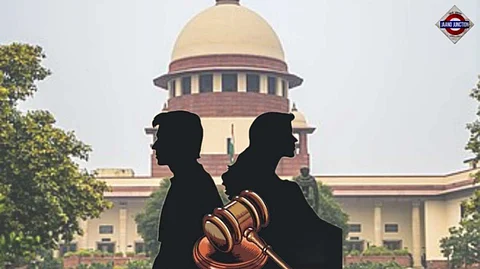

The Supreme Court today ruled that secretly recorded phone conversations of a spouse can be accepted as evidence in a matrimonial dispute. The court overturned a previous judgment by the Punjab and Haryana High Court, which had said that such recordings violate a person’s right to privacy and cannot be used in a family court.
Justice BV Nagarathna, delivering the order along with Justice Satish Chandra Sharma, said some had argued that allowing secret recordings as evidence would harm marital harmony and promote spying between partners,but the court disagreed. Justice Nagarathna said that if a relationship has reached a point where spouses are spying on each other, it’s already a sign that the marriage is breaking down and trust no longer exists.
What Happened in the Case
The case started in a family court in Bhatinda, Punjab, where a man filed for divorce under Section 13 of the Hindu Marriage Act, 1955, accusing his wife of cruelty. He submitted a CD containing phone conversations with his wife, which he had recorded without her knowledge, to support his claims. The family court accepted the CD as valid evidence.
The wife challenged this decision in the Punjab and Haryana High Court. She said the recordings were made without her consent and accepting them would violate her fundamental right to privacy. The High Court agreed with her and overturned the family court's order. It said that people speak more freely in private, especially in a marriage, and their words shouldn't be judged in court when taken out of context.
The husband then appealed to the Supreme Court, which has now ruled in his favour, allowing the recordings to be considered in the divorce proceedings.
With this judgment, the Supreme Court has made it clear that in situations where trust has already broken down, secretly recorded phone calls between spouses can be used as evidence. The court emphasized that such recordings may actually help reveal the truth in troubled marriages, and their use does not automatically violate the right to privacy.
